Top 3 Essential Oils to Help Treat Psoriasis
What are the Symptoms of Psoriasis?
The symptoms of psoriasis include itchy, raised patches of dead cracked skin that may appear all over the body. Skin cells are affected and the symptoms of psoriasis can be extremely painful and many people feel embarrassed when they have an outbreak. Fortunately, both the symptoms and the causes of psoriasis outbreaks can be treated with a little help from essential oils. Essentials oils can be used both topically and diffused as a way to reduce the pain and itching and help you feel better and more confident about your skin.
What Causes Psoriasis?
The cause of psoriasis is unknown, but it is thought to be a combination of environmental and genetic factors that affect skin cells. Some people may inherit genes that make them more likely to get psoriasis, while others may get it from exposure to certain environmental factors, such as infections or stress. Some doctors believe this skin disease is caused by autoimmune disease.
How Topically-Applied Essential Oils Can Help Treat Psoriasis
Psoriasis can be treated topically with essential oils by applying them directly to the affected areas. Topically applied essential oils can moisturize skin cells reducing the itching and the anti-inflammatory and antiseptic properties can help reduce the overall pain of the site.
However, since people with psoriasis also tend to have sensitive and delicate skin, it is highly recommended that when applying essential oils topically you mix the treating essential oil with a carrier oil like coconut or sweet almond oil to prevent irritation. The optimal ratio is 2% essential oil to carrier oil. Before applying your essential oil blend to the affected area, you should test your mixture on a clear patch of skin to make sure that it does not cause any irritation.
The Top Three Essential Oils for Topically Treating Psoriasis
For treating psoriasis topically, it is important that you choose essential oils that have anti-inflammatory effects to help reduce the pain of the outbreak. The three best essential oils for topically treating psoriasis include:
Tea Tree Essential Oil: Tea tree essential oil is one of the most powerful oils for treating skin conditions. It helps reduce inflammation, prevent infection of the affected area, and stimulates the immune system to help support skin health. Tea tree oil is also very moisturizing and can help soothe and soften the affected area.
Lavender Essential Oil: Lavender essential oil also has anti-inflammatory properties and can help promote new skin growth in the affected areas. Lavender also helps reduce stress which can trigger severe psoriasis outbreaks, so it’s a great oil to use in the full treatment of psoriasis.
Rose Geranium Oil: Rose geranium oil has antiseptic, antibacterial, antioxidant, and anti-inflammatory properties so it is great for treating any skin condition including psoriasis. It is excellent for helping remove and treat stubborn patches of psoriasis to promote new skin growth in the area.
These three oils can also be mixed into a blend to treat the area, just make sure to mix them in the same ratio with the carrier oil.
What Drugs are Used to Treat Psoriasis?
There are a variety of drugs that are used by western doctors to treat psoriasis. Some of the most common include corticosteroids, vitamin D analogues, and immunosuppressants. Each drug has its own set of side effects, so it is important to discuss the options with a doctor before starting any treatment.
What is the Difference Between Psoriasis and Psoriasis Vulgaris?
Psoriasis and psoriasis vulgaris are both diseases that cause skin lesions, but they are caused by different mechanisms. Psoriasis is an autoimmune disease that results from the overactivity of T cells, while psoriasis vulgaris is caused by the accumulation of dead skin cells.
Psoriasis vulgaris also known as plaque psoriasis is the most common type of psoriasis, and it can be treated with topical treatments like creams and ointments. Psoriasis is a more serious condition that often requires systemic treatments like immunosuppressants.
The exact cause of plaque psoriasis is still unknown, but it is believed to be related to an overactive immune system that attacks healthy skin cells.
The symptoms of plaque psoriasis can vary by individual, but common symptoms include redness, inflammation, and itching. The affected areas may also feel dry and cracked, and in severe cases, bleeding may occur. Plaque psoriasis can also lead to complications such as joint pain, fatigue, and an increased risk of other health conditions such as heart and liver disease too.
There are various treatment options available for plaque psoriasis, including topical corticosteroids, phototherapy, and systemic medications that suppress the immune system. In addition to these treatments, people with psoriasis have experimented with essential oils to help alleviate their symptoms.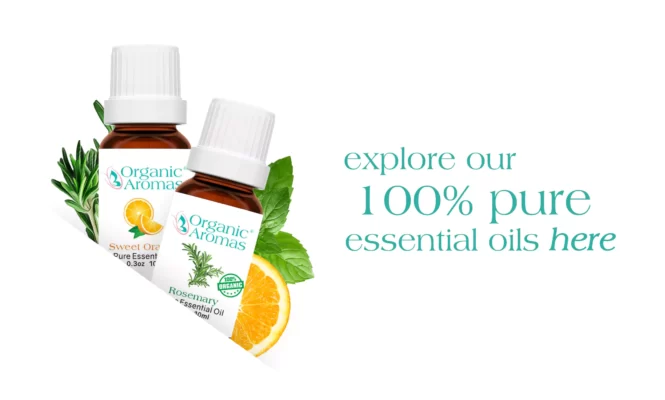
Best Essential Oils For Plaque Psoriasis
One essential oil that has been suggested for use in treating plaque psoriasis is lavender oil. Lavender oil has been shown to have anti-inflammatory properties that can help reduce redness and itching. Another essential oil that may be effective is chamomile oil, which also has anti-inflammatory properties and can soothe irritated skin.
Tea tree oil is another essential oil that has been used to treat this kind of psoriasis. It has antiseptic and anti-inflammatory properties that can help reduce inflammation and itching in dry skin. However, tea tree oil should be used with caution, as it can cause skin irritation in some people.
When using essential oils to treat plaque psoriasis, it is important to dilute the oil with a carrier oil such as coconut or jojoba oil before applying it to the skin. A concentration of 1-5% is recommended. Essential oils should not be ingested and should be kept out of reach of children.
What Is Pustular Psoriasis?
Pustular Psoriasis is a rare type of psoriasis that is characterized by the formation of painful, pus-filled blisters on the skin. This condition can occur in specific areas of the body or can be widespread. Pustular psoriasis episodes can range from mild to severe and can cause serious harm if left untreated.
Symptoms of pustular psoriasis include redness and scaling of the skin, with raised bumps that eventually turn into pustules. These pustules can be filled with a yellowish fluid and may dry up and peel off within days, leaving behind reddish patches and scales very dark skin. The affected areas can be itchy, painful, and sensitive to touch.
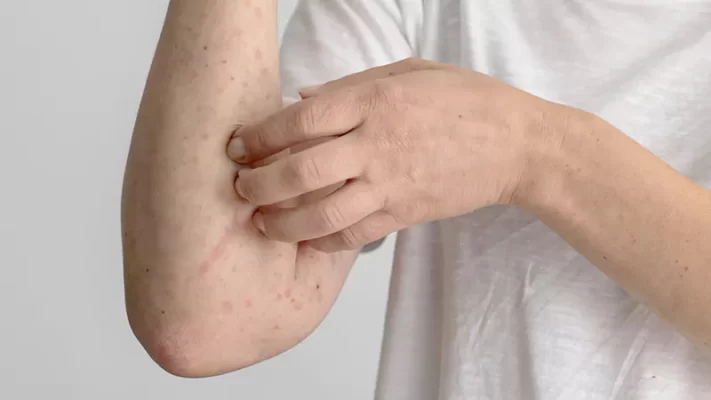
The condition can be triggered by certain medications, infections, stress, exposure to ultraviolet radiation, and other factors. Pustular psoriasis can be a chronic condition that can drastically affect the patient’s quality of life. Activities such as bathing and wearing clothes can cause pain and discomfort.
Treatment options for pustular psoriasis include both home remedies and medical interventions. Home remedies can include soothing baths, applying moisturizers, and using topical steroids to reduce inflammation. Medical treatments can include phototherapy, oral retinoids, and biologic medications that target specific components of the immune system.
Tea Tree Oil Can Be An Effective Treatment For Pustular Psoriasis
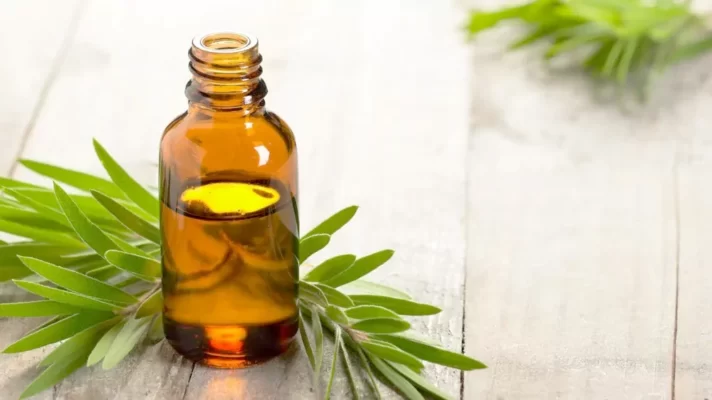
One essential oil that may help relieve the symptoms of pustular psoriasis is tea tree oil. Tea tree oil has anti-inflammatory properties that can alleviate the inflammation and discomfort associated with the condition. It is important to note, however, that essential oils should always be diluted before use and applied only after consulting a healthcare professional.
In addition to physical symptoms, pustular psoriasis can also have emotional and psychological effects on the patient. Coping with a chronic skin condition can be challenging and may lead to anxiety, depression, and social isolation. Patients are encouraged to seek support from loved ones, join support groups, and seek professional counseling if needed.
Pustular psoriasis is a rare and often debilitating skin condition that requires careful management and treatment. By understanding the symptoms, causes, risk factors, and treatment options, patients of pustular psoriasis can take control of their condition and improve their quality of life.
What Is Guttate Psoriasis?
Guttate psoriasis is a skin condition that presents as small, round, red or pink spots on the skin. The spots are often scaly and can appear on various parts of the body, including the arms, legs, chest, and back. Guttate psoriasis is the second most common type of psoriasis, after plaque psoriasis, and typically affects children and young adults.
The exact cause of guttate psoriasis is unknown, but it is believed to be triggered by an infection, particularly streptococcal infection of the throat. Genetics and environmental factors may also play a role in the development of this condition. Common risk factors for guttate psoriasis include a family history of psoriasis, a history of strep throat infections, stress, and skin injuries.
Symptoms of guttate psoriasis include the appearance of small, red or pink spots on the skin that are often covered with fine scales. The spots can be itchy and may sometimes affect the nails. In some cases, guttate psoriasis can be associated with joint pain and inflammation.
According to the National Psoriasis Foundation, guttate psoriasis accounts for approximately 2% of all psoriasis cases. The condition is more common in children and young adults, with a peak onset between the ages of 10 and 30 years old.
While there is no cure for guttate psoriasis, there are various treatment options available to help manage the symptoms.
Best Essential Oil For Guttate Psoriasis
One essential oil that may be used to treat guttate and psoriasis symptoms is chamomile oil. Chamomile has anti-inflammatory properties that can help reduce redness and itching.
When using essential oils to treat guttate psoriasis, it is important to dilute the oil with a carrier oil before applying it to the skin. Essential oils should not be ingested and should be kept out of reach of children.
Guttate psoriasis is a skin condition that can be triggered by an infection or other factors. It is important to talk to a healthcare professional before trying any new treatments and to follow all treatment plans recommended. If you suspect you have guttate psoriasis, seek medical attention for an accurate diagnosis and appropriate treatment.
What Is Psoriatic Arthritis?
Psoriatic arthritis is a chronic inflammatory condition that affects both the skin and joints and entire body. It is an autoimmune disorder, which means that the immune system mistakenly attacks healthy tissues in the body, leading to joint inflammation and skin rashes.
The exact cause of psoriatic arthritis is unknown, but it is believed to be related to both genetic and environmental factors. Psoriatic arthritis is commonly associated with psoriasis, a skin condition characterized by red, scaly patches on the skin. Approximately 30% of people with psoriasis will develop psoriatic arthritis.
Symptoms of psoriatic arthritis can vary, but common symptoms include joint pain, stiffness, and swelling. The affected joints may also feel warm to the touch and be tender. In addition to joint symptoms, people with psoriatic arthritis may also experience fatigue, reduced range of motion, and nail changes.
Diagnosis of psoriatic arthritis typically involves a physical examination, medical history review, and imaging tests. Blood tests may also be used to help confirm a diagnosis and rule out other conditions.
Treatment options for psoriatic arthritis depend on the severity of the condition and may include nonsteroidal anti-inflammatory drugs (NSAIDs), disease-modifying antirheumatic drugs (DMARDs), and biologic medications that target specific components of the immune system. Physical therapy and exercise may also be recommended to help improve joint function and mobility.
Recent developments in treating psoriatic arthritis include the use of targeted therapies that specifically target the inflammation pathways involved in the condition. These therapies have shown promise in reducing symptoms and slowing disease progression.
Best Essential Oil For Psoriatic Arthritis
Essential oils may also be used in conjunction with traditional treatments to help alleviate symptoms of psoriatic arthritis. One essential oil that may be beneficial is frankincense oil. Frankincense has anti-inflammatory properties that can help reduce joint inflammation and pain. Another essential oil that may be helpful is ginger oil, which also has anti-inflammatory properties and can help reduce joint pain and stiffness.
It is important to note that while essential oils may provide relief for some people with psoriatic arthritis, they should not be used as a substitute for traditional medical treatments. It is also important to talk to a healthcare professional before trying any new treatments.
In addition to physical symptoms, psoriatic arthritis can have a significant impact on a person’s quality of life, including social activities, work, and daily routines. Coping with a chronic condition can also lead to emotional and psychological stress. Patients are encouraged to seek support from loved ones, join support groups, and seek professional counseling if needed.
Psoriatic arthritis is a chronic inflammatory condition that affects both the skin and joints. While there is no cure for psoriatic arthritis, there are various treatment options available to help manage symptoms and slow disease progression.
What Is Inverse Psoriasis
Inverse psoriasis, also known as intertriginous psoriasis, is a less common form of psoriasis that affects areas of the body where skin folds, such as under the breasts, in the groin, and in the armpits. Unlike other types of psoriasis, inverse psoriasis causes smooth, red, and shiny patches, instead of scaly patches.
Symptoms of inverse psoriasis typically include intense itching, soreness, and burning sensations. The patches may also crack and bleed, leading to discomfort and potential infections. Inverse psoriasis can also cause complications such as fungal infections, bacterial infections, and a higher risk of developing other types of psoriasis.
The exact cause of inverse psoriasis is unknown, but it is believed to be triggered by a combination of genetic, environmental, and immune system factors. People with obesity, type 2 diabetes, and a family history of psoriasis are at a higher risk of developing inverse psoriasis.
Topical treatments such as corticosteroids, calcineurin inhibitors, and coal tar preparations are often used to manage symptoms of inverse psoriasis. Systemic treatments, such as oral medications and biologic drugs, may also be prescribed for when psoriasis develops more severe cases. However, these treatments may have potential side effects and risks, so it is important to discuss them with a healthcare provider.
An essential oil that has been shown to be beneficial for psoriasis is tea tree oil. It has anti-inflammatory and antibacterial properties that can help reduce inflammation and prevent infections. It is important to note, however, that essential oils should be used with caution and should not be applied directly to the skin without dilution.
Lifestyle Changes To Manage Inverse Psoriasis
In addition to medical treatments, lifestyle changes may also provide relief for people with inverse psoriasis. Maintaining a healthy weight, managing stress levels, avoiding triggers such as tight clothing and excessive sweating, and following a diet rich in fruits, vegetables, and omega-3 fatty acids may help reduce symptoms.

Inverse psoriasis is a unique form of psoriasis that can cause discomfort and complications, but can be managed with proper treatment and lifestyle changes. It is important to seek medical advice if you suspect you have inverse psoriasis or any other type of psoriasis, as early diagnosis and treatment can prevent further complications.
What Is Nail Psoriasis
Nail psoriasis is a chronic autoimmune skin disease that affects the nails and surrounding tissues. It is estimated that up to 50% of people with psoriasis also develop nail psoriasis. The condition can cause a range of symptoms, including discoloration, pitting, thickening, and deformation of the nails.
There are several possible causes and triggers of nail psoriasis. Genetic factors play a significant role in the development of the condition, as it often runs in families. Environmental factors such as infections, injuries, and exposure to chemicals or irritants can also trigger or exacerbate nail psoriasis. Lifestyle factors such as smoking, stress, and obesity may also play a role.
The signs and symptoms of nail psoriasis can vary from person to person, but commonly include:
-
Discoloration or yellowing of the nails
-
Pitting or small dents in the nail surface
-
Thickening of the nails
-
Separation of the nail from the nail bed
-
Crumbling or brittle nails
-
Deformation or misshapen nails
-
Pain or discomfort in the affected area
There are several treatment options available for nail psoriasis, including topical and systemic medications, lifestyle modifications, and phototherapy. Topical treatments such as corticosteroids, vitamin D analogues, and calcineurin inhibitors can help manage symptoms and improve the appearance of the nails. Systemic medications such as methotrexate and biologic drugs may be prescribed for the psoriasis diagnosed more severe cases.
Lifestyle modifications can also be effective in managing nail psoriasis. Quitting smoking, maintaining a healthy weight, and managing stress levels can all help reduce symptoms. In addition, using gentle nail care practices, such as keeping nails trimmed and moisturized, can also help prevent further damage to the nails.
Essential Oils To Treat Nail Psoriasis
Essential oils should only be used in conjunction with medical treatments prescribed by a healthcare professional. An essential oil that may be helpful for treating nail psoriasis is tea tree oil. Other essential oils that may be beneficial for nail psoriasis include lavender oil, frankincense oil, and myrrh oil.
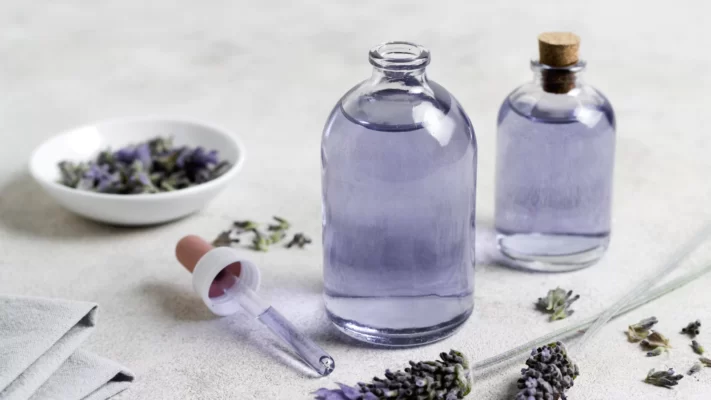
Phototherapy, or light therapy, is another treatment option that involves exposing the affected area to ultraviolet (UV) light. This can help reduce inflammation and improve the appearance of the nails.
What Is Erythrodermic Psoriasis
Erythrodermic psoriasis is a rare and severe form of psoriasis that affects the entire body. It is estimated that less than 3% of people with psoriasis develop erythrodermic psoriasis. This type of psoriasis can be life-threatening and requires immediate medical attention.
Erythrodermic psoriasis causes the skin to become red, inflamed, and covered with scales that shed easily. The skin may also be itchy, painful, and feel like it is burning or on fire. In addition to affecting the skin, erythrodermic psoriasis can also cause fever, chills, and rapid heart rate.
The exact cause of erythrodermic psoriasis is unknown, but it is believed to be triggered by a number of factors, including sudden withdrawal from systemic psoriasis treatments, severe sunburn, infections, and certain medications.
Because erythrodermic psoriasis can be life-threatening, it requires immediate medical attention. Treatment typically involves hospitalization and may include topical or systemic medications, intravenous fluids, and other supportive therapies.
Topical treatments such as corticosteroids and emollients can help reduce inflammation and soothe the skin. Systemic medications, such as methotrexate and cyclosporine, may also be prescribed to help manage symptoms and prevent complications.
In addition to medical treatments, lifestyle modifications such as avoiding triggers, moisturizing the skin, and maintaining a healthy weight may help manage symptoms of erythrodermic psoriasis.
How Diffused Essential Oils Can Help Treat Psoriasis
Outbreaks of psoriasis are usually triggered by periods of high stress. Diffusing stress-relieving essential oils can help reduce the levels of stress, thereby reducing the triggers. There are many great essential oils that can help reduce stress through diffusion. Whether you choose a stress-relieving essential oil blend, like our favorite Serenity from our designer series or a single oil like ylang ylang, lavender, grapefruit or rose geranium, diffusing oils regularly or during periods of high stress can help reduce outbreaks of psoriasis.
The Importance of Using Pure Essential Oils
When using an essential oil to treat a medical condition like psoriasis, it is crucial that you choose a high quality, pure essential oils extracted directly from the herbs, barks, or flowers. Many essential oils on the market are simply perfume oils that are scented with chemicals or a mix of different plants and a carrier oil.
These oils can cause severe skin irritation, especially when applied topically to a patch of psoriasis. So when purchasing essential oils, make sure that they are 100% pure like the oils found at Organic Aromas, otherwise you may exacerbate your condition. This is also very important when it comes to diffusion for stress relief, as perfume oils are not effective at bringing relief and can even trigger health issues like allergies.
So if you are looking for a natural way to treat your psoriasis, start with a topical treatment of tea tree, lavender, or rose geranium and then combine it with diffusing stress relieving oils to reduce breakouts. Make sure to only use 100% pure essential oils for the most effective treatment.


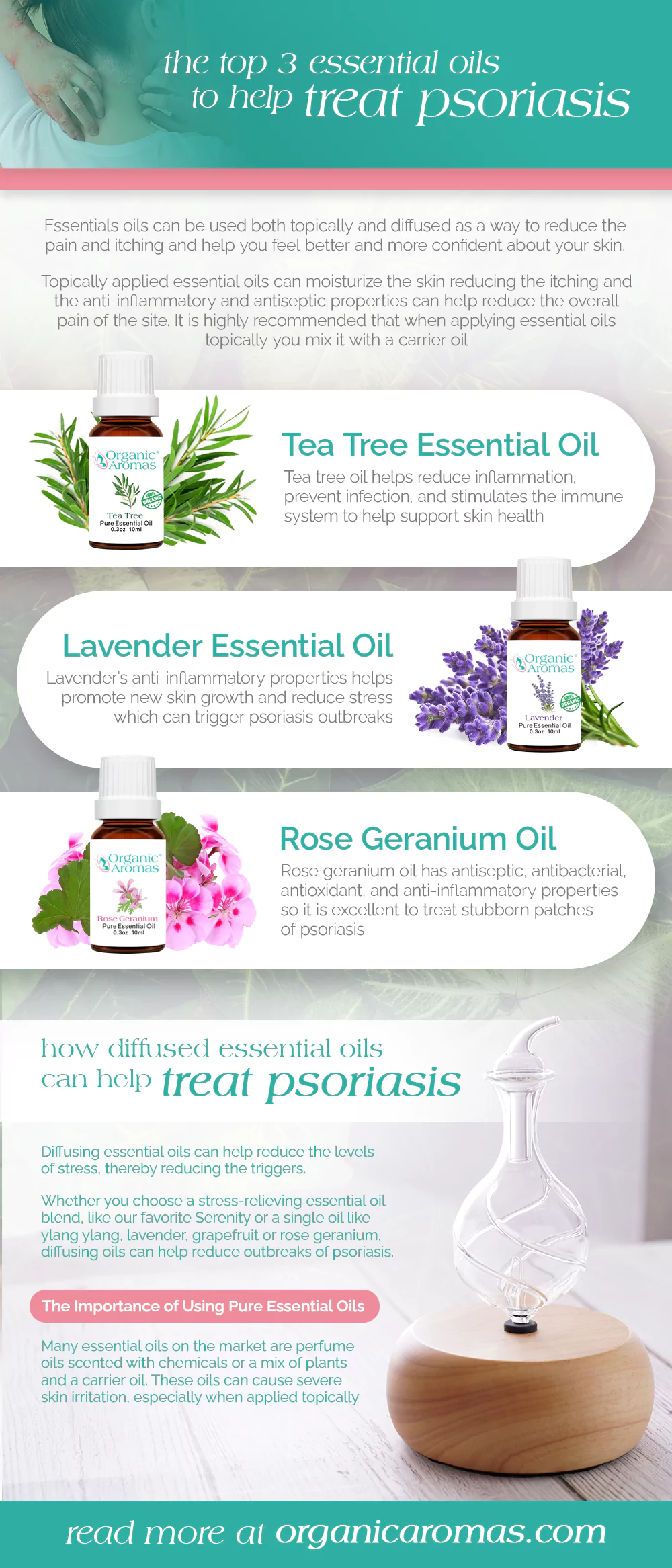
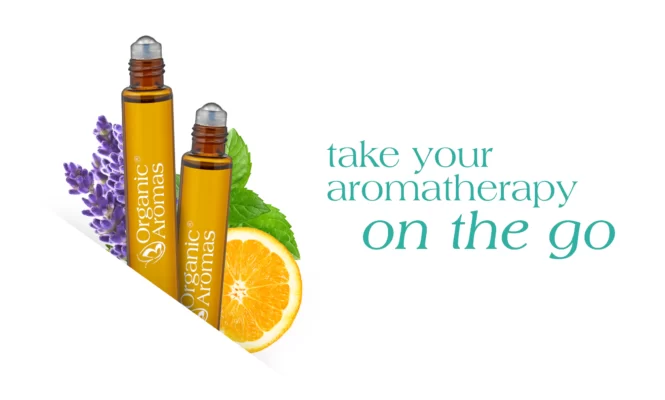
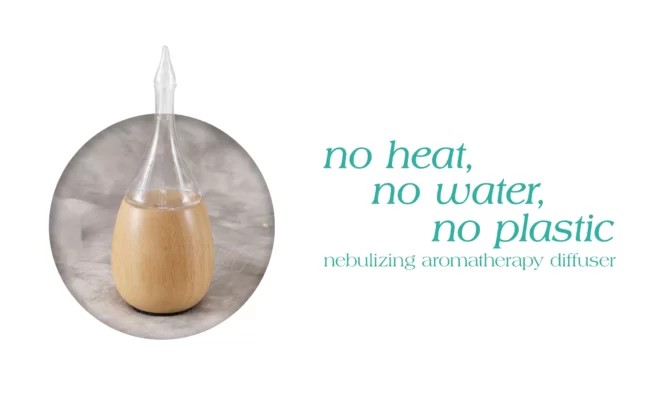
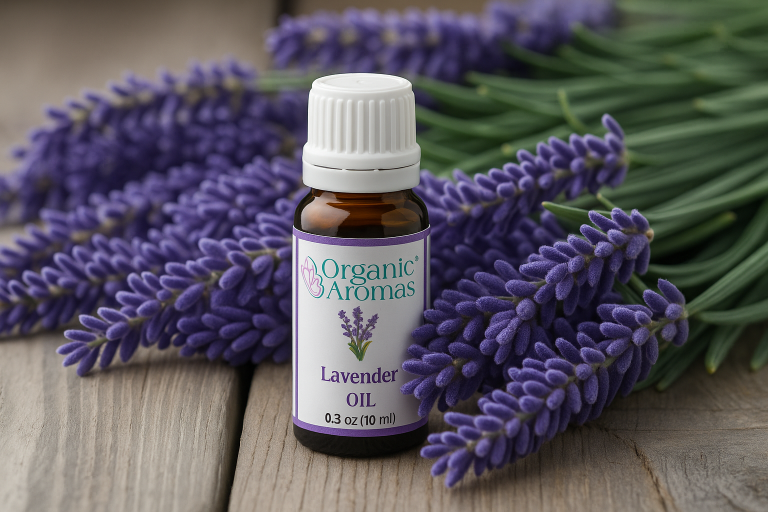
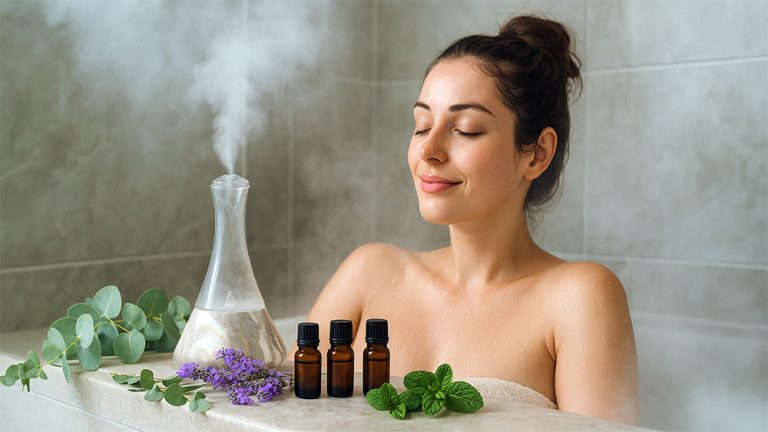

Hi my loved one! I wish to say that this post is amazing, nice written and include approximately all vital infos. I’d like to peer more posts like this.
I have read some excellent stuff here. Definitely value bookmarking for revisiting. I wonder how much effort you put to make the sort of excellent informative website.
I was recommended this website by my cousin. I am not sure whether this post is written by him as nobody else know such detailed about my trouble. You are amazing! Thanks!
Good information.
He probably just had a really bad case dandruff, Seb derm, paid more attention to hair washing or whatever.
Psoriasis cannot be healed from the external body.
I am confused why it is recommended to use lavender oil if it promotes new skin growth in the affected areas?? Isn’t this the exact issue for psoriasis which is a skin condition that speeds up the life cycle of skin cells. It causes cells to build up rapidly on the surface of the skin?
I just started using the body oil lavender I’ll let ya know how it goes.. suffering a lot with psoriasis. Don’t want to give up.
So for psoriasis, the 3 best oils are Rose geranium, lavender & tea tree? I’ve read in the comments not to use lavender, is this true? Don’t want to make it worse!!!!
This stuff can help relax which is always a good thing, but it’s a band-aid. Plain and simple. the best way to combat psoriasis is fixing it inside not outside. 9 times out of 10 people that have psoriasis have digestive problems which contributes to it. Usually something like leaky gut where your small intestine has holes in it and the bad stuff is escaping into your blood stream etc. Try enzyme tablets to help really break your food down better, l-glutamine to repair the walls and eat really, really healthy. No bad foods at all. Sooner or later you will see improvements far better than oils.
should i apply the oil after taking shower or before? because i find my hair looks so oily after appling them
I use Essante Organics – best company I have ever found for all organic products.
perhaps the lavender was not organic and pure If it is perfume based it will irritate the skin and make it worse
I use foderma serum to calm psoriasis patches along with other meds. I use it twice a day and it does much longer lasting than any lotion I used to use.
I use Peppermint, eucalyptus, viitamib E oil, i mix it with vapor rub.
HELP! Jody, you say USE LAVENDER FOR PSORIASIS, but
Leanne, you say NEVER USE IT! I have psoriasis, I need help, USE IT OR DON’T? Also Thyroid, What helps thyroid, which oils Thank you I need help immediately!
Thank you for sharing your usage of these essential oils.
Lavender is wonderful to helping clear up psoriasis.
My brother put some pure oil in his shampoo and it is gone on his head.
He has battled it for many years and he finally has relief.
NEVER EVR use Lavender oil with Psorisis ! its ok with excema but not psorisis ..it makes it much worse and painfully inflames the skin . i learned this from my tutor who after more than 30 years of professional remidial massage treatment became a tutor His wife was a professional aromatherapist . that was 22 years ago and i have found it to be acurate in my own massage business . thats 52 years of treatment experience .
I have skin condition..and the oils helps a lot..even i love to use it in my face..people tells me that i look younger than my age cause i dont use lotions..only oils
Very interested in trying some of these remedies with my mother who struggles with psoriasis especially as seasons and allergens change.
Also interested to see if they have any impact on psoriatic arthritis
I have psoriasis, so this article was very helpful. I plan to purchase the waterless oil diffuser from organic aroma’s soon to also help. I love coming home to oil smells and not chemicals from candles.
Good to know. Sharing this information with my friends.
very useful and informative article
I absolutely love infographics – keep them up 🙂
I have this condition and finding natual alternatives to prescription drugs is always welcome information. I will be trying these.
That’s so interesting that these essential oils are good for almost any skin condition.
I definitely will try the blend of oils for people I know with psoriasis. I have theses oils on hand at all times! Destressing is so very important weather skin condition or keeping those neck knots at bay or just getting through the day.
Such good information!! Amazing essential oils.
Thank you for the info
Using Rose Geranium Oil for ski conditions is new to me. I plan to try it.
These 3 essential oils are truly amazing. I definitely need to try this.
These 3 essential oils can be used in so many ways!
makes complete sense… willing to try homeopathic and nautral due to my sensitive skin. great info and thank you!
My father-in-law might benefit from this information.
Thank U for Great article, it’s very heplfull.
I am Cosmetologist, I know this problem in practise. How big it is for clients with psioriasis. I recommend clients with this desease start with a natural therapy treatment. Only 100% pure essential oils with good quality…
Especially lavender calm tenses and relax the mind. Usualy I preffer it with aromatherapy in beauty salon or just relax and home, its’ very helpfull with normal life. In Psioriasis problem but in everyone single life. By the way…. Lavender is awesome even for better sleeping!
Recommend only pure essetial oils.
Thank you for the great information!
Essential oils are great!! Keep in mind that they are not safe to use around cats though. The reason is because cats lack a certain liver enzyme and so basically essential oils build up in their little bodies as toxins and because they cannot get rid of these toxins, they can get sick and die!! There is much controversy about which oils are safe/unsafe for cats. Please be careful!!
helpful info
I don’t know anyone with psoriasis at the moment but have done. Good thing to remember this information as it might help other skin problems as well.
Thank you so much for these very informative tips. Always impressed with the quality and education I receive from Organic Aromas!
I’m just getting into essential oils and looking for web sites with integrity and good products and information. It sure takes time to begin to feel confident with a particular site. So far I have been impressed with the products and information that I’ve been able to get from Organic Aromas. I just got my first news letter today and saw the article on psoriasis. I’ve had some on my upper and lower legs and elbows. Not really bad but, annoying. I have been putting coconut oil, sesame seed oil and some I’ve mixed frankincense, peppermint and lemon. Haven’t seen much change yet. I will put together the combo of what you have suggested in the article, I just have to get some rose geranium first. Although, I think I will try the oils I already have, tea tree and lavender.
Thank you for such great, informative tips! I keep hearing so much good stuff about Rose Geranium Oil! I will definitely utilize this one both topically and diffused. My sister will be excited about trying this.
Thank you so much for these tips 🙂 I show this to my dad!
Very informative…….I also like using tea tree oil and lavender in my shampoo bottle for dandruff….works wonders!
An elderly friend suffers from psoriasis. Thank you for this.
Thanks for another helpful and informative article.
Thsnk you for this valuable information! You guys rock; love your nebuluzers, EO’s and service level. So happy to be a customer and share with others that are looking for quality products. Thank you!
Being a Holistic Esthetician and Certified Aromatherapist for over 26 years, I can vouch that I cleared up a client’s psoriasis condition by using a diluted massage blend of Lemon and Cedarwood with a bi-weekly protocol for 4 months. Great suggestions here.
What was the blend of Lemon & cedar wood you used please
Being a Holistic Esthetician and Certified Aromatherapist for over 26 years, I can vouch that I cleared up a client’s psoriasis condition by using a diluted massage blend of Lemon and Cedarwood with a bi-weekly protocol for 4 months. Great suggestions here.
Love the infographic! Thanks for sharing this valuable information.
Ooh, I had heard about the “repeat offenders”, (tea tree and lavender) but I was unfamiliar with using rose geranium for its antiseptic, antibacterial, antioxidant, and anti-inflammatory properties. Wonderful to know! What I especially like, is that we can double-team skin conditions by using specific oils on the skin and other pertinent oils in the diffuser. I learn something every time I read one of your posts!
I didn’t realize rose geranium had antiseptic, antibacterial, antioxidant and anti-inflammatory properties too. It smells so pretty.
I learn so much about oils from your blog! I started small and so far I only own lemon, lavender, and peppermint, but I am amazed at all the medicinal properties of these oils!! Thank you for sharing your knowledge!
Great info, have a daughter with psoriasis and will definetely tell her